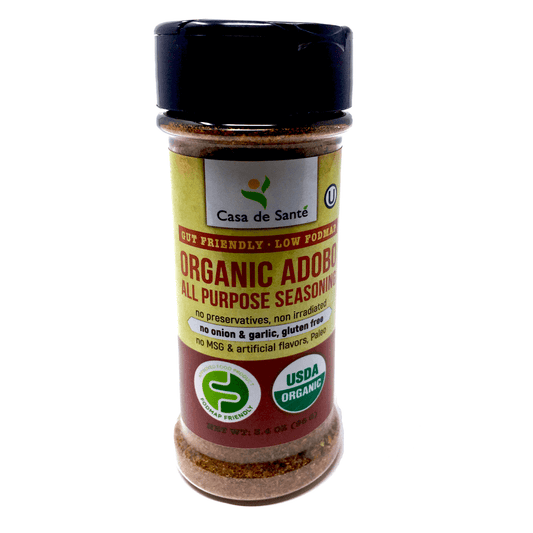Wheat Zoomer + Gut Commensals by Vibrant Wellness Vs FIT Test (Food Inflammation Test)
Food sensitivity testing has become increasingly popular in recent years as more and more people realize the impact that certain foods can have on their health. Two tests that have gained attention in this field are Wheat Zoomer + Gut Commensals by Vibrant Wellness and FIT Test (Food Inflammation Test). In this article, we will delve into the details of both tests and compare their procedures, accuracy, and reliability.
Understanding the Basics: Wheat Zoomer and Gut Commensals
Before we compare the two tests, let's take a closer look at what each of them entails.
When it comes to food sensitivity testing, it's important to have a comprehensive understanding of the specific reactions our bodies may have to certain foods. This is where the Wheat Zoomer test comes in. Designed to identify reactions to various wheat proteins, the Wheat Zoomer test goes beyond traditional testing methods to provide a detailed analysis of wheat-related sensitivities.
So, how does the Wheat Zoomer test work? By identifying specific antibodies that are produced in response to wheat proteins, this test can help individuals understand their immune response to wheat. This information can then be used to make informed dietary choices that can minimize adverse reactions and promote overall well-being.
What is Wheat Zoomer?
Wheat Zoomer is a comprehensive food sensitivity test designed to identify reactions to various wheat proteins. This test goes beyond traditional testing methods to provide a detailed analysis of wheat-related sensitivities. By identifying specific antibodies, the Wheat Zoomer test can help individuals understand their immune response to wheat and make informed dietary choices.
But why is it important to identify wheat-related sensitivities? Well, for many people, wheat is a staple in their diet. However, some individuals may experience adverse reactions to wheat proteins, which can manifest in various ways, such as digestive issues, skin problems, or even neurological symptoms. By pinpointing these sensitivities through the Wheat Zoomer test, individuals can take steps to avoid triggering foods and potentially alleviate their symptoms.
Moreover, the Wheat Zoomer test provides a comprehensive analysis of not just one specific wheat protein, but a wide range of them. This allows for a more accurate assessment of an individual's immune response to wheat and a better understanding of which specific proteins may be causing the sensitivity.
The Role of Gut Commensals in Health
Gut commensals, or gut microbiota, refer to the vast community of microorganisms that reside in our intestinal tract. These organisms play a vital role in maintaining digestive health, regulating the immune system, and even influencing mental well-being. Understanding the relationship between gut commensals and our overall health is crucial in developing a holistic approach to food sensitivity testing.
Our gut is home to trillions of microorganisms, including bacteria, fungi, and viruses. These microorganisms form a complex ecosystem that works in harmony to support our health. They help break down and digest food, produce essential vitamins and nutrients, and even communicate with our immune system.
Research has shown that an imbalance in gut commensals, known as dysbiosis, can have a profound impact on our health. Dysbiosis has been linked to a wide range of conditions, including digestive disorders, autoimmune diseases, obesity, and even mental health disorders like depression and anxiety.
So, how does the role of gut commensals tie into food sensitivity testing? Well, our gut microbiota can influence how our body reacts to certain foods. For example, if there is an imbalance in the gut microbiota, it can lead to increased intestinal permeability, also known as leaky gut syndrome. This can allow undigested food particles and toxins to enter the bloodstream, triggering an immune response and potentially causing food sensitivities.
Therefore, when it comes to food sensitivity testing, it's important to not only focus on the immune response but also consider the role of gut commensals. By understanding the intricate relationship between our gut microbiota and our overall health, we can develop a more holistic approach to food sensitivity testing that takes into account the underlying factors contributing to sensitivities.
Delving into the FIT Test (Food Inflammation Test)
Now, let's turn our attention to the FIT Test and explore its scientific foundation and working mechanism.
The FIT Test is a revolutionary tool in the field of food sensitivity testing. It goes beyond the traditional approach of identifying immediate allergic reactions and focuses on identifying delayed immune responses that can lead to chronic inflammation in the body. By understanding these delayed immune responses, individuals can make informed dietary choices to improve their overall health and well-being.
The Science Behind the FIT Test
The FIT Test measures the body's IgG immune response to a wide range of food antigens, indicating potential inflammation caused by these specific foods. IgG antibodies are a crucial part of the immune system's defense mechanism against harmful substances. However, when the body produces an excessive amount of IgG antibodies in response to certain foods, it can lead to chronic inflammation.
Chronic inflammation, although often silent and unnoticed, can have a significant impact on overall health. It has been linked to various health conditions, including digestive disorders, skin issues, autoimmune diseases, and even mental health disorders. By detecting abnormal levels of IgG antibodies, the FIT Test can pinpoint which foods may be triggering an inflammatory response in the body.
Through extensive research and clinical studies, scientists have identified a correlation between elevated IgG antibody levels and chronic inflammation. This information allows individuals to tailor their diets, potentially avoiding certain foods that could be causing chronic inflammation.
How the FIT Test Works
The FIT Test requires a blood sample, which is analyzed for IgG antibodies against a panel of common foods. The blood sample is carefully examined using advanced laboratory techniques to determine the levels of IgG antibodies present. The results provide a comprehensive overview of an individual's immune response to specific foods, which helps guide dietary modifications that can alleviate inflammation and promote overall wellness.
Once the FIT Test results are obtained, individuals can work with healthcare professionals, such as dietitians or nutritionists, to develop personalized dietary plans. These plans are designed to eliminate or reduce the consumption of foods that trigger an inflammatory response, while still ensuring a balanced and nutritious diet.
It is important to note that the FIT Test is not a diagnostic tool for food allergies, but rather a tool to identify potential food sensitivities that may contribute to chronic inflammation. It provides valuable information that can empower individuals to make informed choices about their diet and potentially improve their quality of life.
Vibrant Wellness: A Closer Look
Before exploring the differences between Wheat Zoomer + Gut Commensals and the FIT Test, let's learn more about the healthcare company behind Wheat Zoomer - Vibrant Wellness.
Vibrant Wellness is not just your average healthcare company. It is a company with a mission - a mission to empower individuals with relevant, accurate, and actionable health information. With a deep understanding of the importance of personalized healthcare, Vibrant Wellness is committed to providing cutting-edge testing methods and comprehensive analysis to optimize health outcomes.
But what sets Vibrant Wellness apart from other healthcare companies? It's their unwavering focus on identifying potential food sensitivities and guiding individuals towards personalized dietary plans. They believe that food plays a crucial role in our overall health and well-being, and by understanding our unique sensitivities, we can make informed choices that will positively impact our lives.
The Philosophy of Vibrant Wellness
Vibrant Wellness believes in the power of knowledge. They understand that by equipping individuals with accurate and actionable health information, they can take control of their well-being and make informed decisions about their health. Their philosophy is rooted in the belief that everyone deserves to live a vibrant and healthy life.
At Vibrant Wellness, they don't just stop at providing basic health information. They go above and beyond to offer comprehensive testing methods that delve deep into various aspects of health. From hormones to gut health, detoxification to nutrient levels, Vibrant Wellness covers it all. By providing a holistic view of an individual's overall well-being, they empower individuals to take charge of their health and make informed choices.
The Tests Offered by Vibrant Wellness
When it comes to testing, Vibrant Wellness offers a wide range of functional medicine tests. These tests are specifically designed to evaluate different aspects of health, providing a comprehensive picture of an individual's well-being.
One of their most popular tests is the Wheat Zoomer + Gut Commensals. This test is not just about identifying wheat sensitivities; it goes beyond that. It also evaluates the gut commensals, which are the beneficial bacteria in our gut. By understanding the balance of these bacteria, Vibrant Wellness can gain valuable insights into an individual's digestive health.
But that's not all. Vibrant Wellness offers an array of other tests as well. Whether you're concerned about hormone imbalances, gut health issues, detoxification problems, or nutrient deficiencies, Vibrant Wellness has a test for you. These tests are designed to uncover underlying issues and provide targeted recommendations for improvement.
So, if you're looking for a healthcare company that truly cares about your well-being, look no further than Vibrant Wellness. With their commitment to empowering individuals through comprehensive testing and personalized guidance, they are here to help you live a vibrant and healthy life.
Comparing Wheat Zoomer + Gut Commensals and FIT Test
Now that we have explored the individual aspects of both tests, let's compare them directly and examine how they differ.
Test Procedures: Wheat Zoomer + Gut Commensals vs FIT Test
Wheat Zoomer + Gut Commensals requires a blood sample, which is analyzed for specific wheat-related antibodies and assessed for the presence of certain gut commensals. The FIT Test, on the other hand, also requires a blood sample but focuses on measuring IgG antibodies against a broader panel of foods. Both tests require a blood draw, making them minimally invasive and convenient for individuals seeking food sensitivity testing.
Accuracy and Reliability: A Comparative Analysis
When it comes to accuracy and reliability, both Wheat Zoomer + Gut Commensals and the FIT Test have undergone extensive validation and testing. However, it is essential to note that individual factors, such as an individual's unique immune response and the specific foods being tested, can impact the results. Understanding the limitations and interpreting the results in conjunction with personalized health history is crucial to making informed decisions based on the test outcomes.
The Importance of Food Sensitivity Testing
Food sensitivities can have a significant impact on your overall health and well-being. Detecting these sensitivities plays a vital role in managing symptoms and preventing long-term health complications.
Detecting Food Sensitivities: Why it Matters
By identifying specific foods that trigger an immune response, individuals can make dietary adjustments that can alleviate symptoms such as bloating, fatigue, skin issues, and digestive disturbances. Detecting food sensitivities can also aid in managing chronic conditions such as irritable bowel syndrome, autoimmune disorders, and migraines.
The Impact of Food Sensitivities on Overall Health
Undiagnosed food sensitivities can lead to persistent inflammation in the body, which can contribute to a range of health issues. By understanding and addressing these sensitivities, individuals may experience improvements in energy levels, digestion, skin health, and overall quality of life.
In conclusion, both Wheat Zoomer + Gut Commensals by Vibrant Wellness and the FIT Test serve as valuable tools in identifying food sensitivities and promoting overall health. The choice between the two ultimately depends on individual needs and preferences. It is important to consult with healthcare professionals to determine which test is best suited for your specific situation. With the insights gained from food sensitivity testing, individuals can make informed decisions about their diet and take control of their health.
























